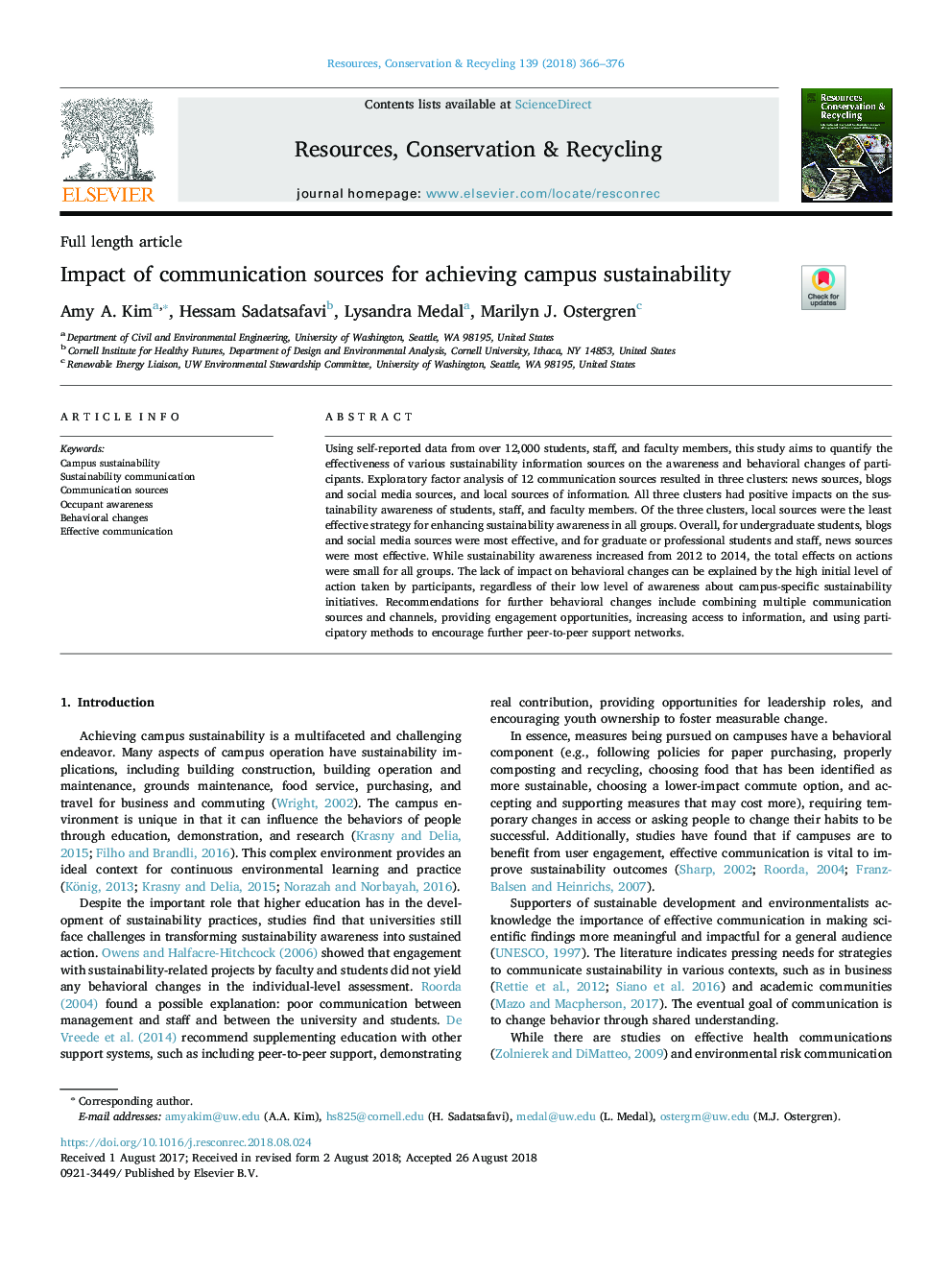| Article ID | Journal | Published Year | Pages | File Type |
|---|---|---|---|---|
| 11005419 | Resources, Conservation and Recycling | 2018 | 11 Pages |
Abstract
Using self-reported data from over 12,000 students, staff, and faculty members, this study aims to quantify the effectiveness of various sustainability information sources on the awareness and behavioral changes of participants. Exploratory factor analysis of 12 communication sources resulted in three clusters: news sources, blogs and social media sources, and local sources of information. All three clusters had positive impacts on the sustainability awareness of students, staff, and faculty members. Of the three clusters, local sources were the least effective strategy for enhancing sustainability awareness in all groups. Overall, for undergraduate students, blogs and social media sources were most effective, and for graduate or professional students and staff, news sources were most effective. While sustainability awareness increased from 2012 to 2014, the total effects on actions were small for all groups. The lack of impact on behavioral changes can be explained by the high initial level of action taken by participants, regardless of their low level of awareness about campus-specific sustainability initiatives. Recommendations for further behavioral changes include combining multiple communication sources and channels, providing engagement opportunities, increasing access to information, and using participatory methods to encourage further peer-to-peer support networks.
Related Topics
Physical Sciences and Engineering
Energy
Renewable Energy, Sustainability and the Environment
Authors
Amy A. Kim, Hessam Sadatsafavi, Lysandra Medal, Marilyn J. Ostergren,
